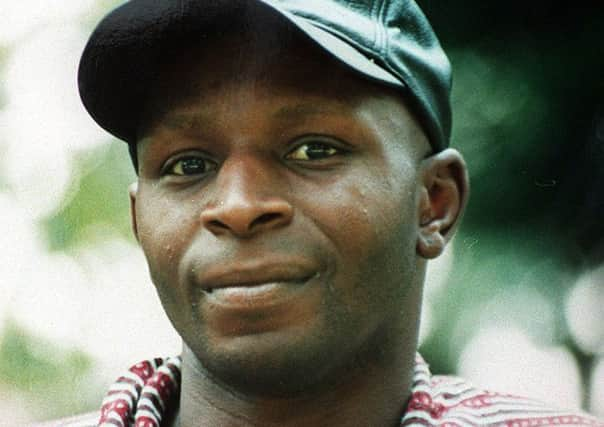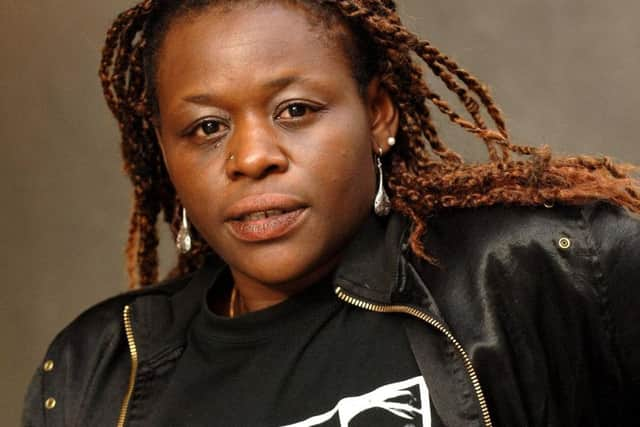Exclusive: ‘End police’s right to silence on crimes’


Dr Richard Stone, who was an adviser to Sir William Macpherson during his landmark inquiry into the racist murder of Stephen Lawrence, said he believes the right to silence is “not compatible with being a police officer”.
His comments come after this newspaper revealed that two officers who are believed to have authorised and led an “improper” surveillance operation at the inquest into the death of black former paratrooper Christopher Alder refused to answer questions when interviewed under caution as part of a criminal inquiry by the Independent Police Complaints Commission (IPCC).
Advertisement
Hide AdAdvertisement
Hide AdFive other officers, who were present when Mr Alder died on the floor of the custody suite of a Hull police station, refused to co-operate with a 2006 IPCC review of the case that had been ordered by the Home Secretary.


The review found the officers guilty of “unwitting racism” and the “most serious neglect of duty”.
Dr Stone said: “I have said to senior police officers that police officers who don’t co-operate with other police officers investigating murder and other serious crimes should be disciplined for gross misconduct and should be fired immediately. Yes, you are entitled to a right to silence, but I don’t believe that is compatible with being a police officer.”
In an exclusive interview, Dr Stone said: “Trust and confidence is so important, particularly in minority communities. The attitude of police forces to complaints from minority people is one of extreme defensiveness and they have got to get themselves out of that or there are always going to be explosions out of it.”
Advertisement
Hide AdAdvertisement
Hide AdConcern about police officers’ non-co-operation with IPCC investigations was aired in a Commons debate earlier this month led by Conservative MP Charles Walker.
In the Commons, Mr Walker said: “We must address the fact that police officers are not required to answer questions put to them by the Independent Police Complaints Commission.
“That is simply ridiculous,” he added.
“I am aware that many senior police officers in the Association of Chief Police Officers (ACPO) believe it is a nonsense and needs to be addressed.”
Responding to Dr Stone’s comments, Chief Constable Michael Cunningham, ACPO’s national policing lead for professional standards, said: “Everyone in the police service has a duty to ensure that their actions uphold the public’s confidence in policing.
Advertisement
Hide AdAdvertisement
Hide Ad“The College of Policing’s draft code of ethics is very clear that officers and staff are rightly expected to act with honesty and integrity.
“Police officers do co-operate with the vast majority of investigations conducted by third parties like the Independent Police Complaints Commission.
“In the very small number of occasions where they are seen to be unco-operative, the IPCC has recently gained new powers to compel attendance.
“If there are doubts about an officer’s integrity or conduct as a result of what they said, or refused to say, during any third party investigation there is a power to assess whether such refusal amounts to misconduct or gross misconduct and a force’s professional standards department can take action through misconduct proceedings, which may, where justified, include dismissal.”
Advertisement
Hide AdAdvertisement
Hide AdDr Stone was one of four advisers to Sir William, whose 1999 report marked a watershed in UK race relations. It branded the Metropolitan Police, the UK’s biggest police force, institutionally racist and made over 70 recommendations. However, Dr Stone said he was dismayed by what he called a lack of progress on key issues, adding: “14 years on I don’t feel we can address racism the way we did.” .
“The police have moved on in many ways but not when it comes to black people in the disparities in stop and search and promoting black officers. We need to approach it from the view of police professionalism. They need to stop the disparities in stop and search and start promoting black officers.”
The IPCC probe into Alder inquest surveillance began after allegations that police spied on the Lawrence family with the aim of smearing them.
Following claims by former undercover Metropolitan Police officer Peter Francis, the Home Secretary asked all forces to check their records for evidence of surveillance relating to Mr Lawrence’s murder in London in 1993 and the subsequent inquiry. Humberside Police said it had no evidence of this, but its searches revealed evidence to suggest Mr Alder’s sister Janet, and another person, were placed under “improper surveillance” in 2000.
Advertisement
Hide AdAdvertisement
Hide AdMr Alder, 37, a father of two, died face down on the floor of Queens Gardens Police Station on April 1, 1998, with his arms handcuffed behind his back and his trousers round his ankles.
The inquest jury found he had been unlawfully killed. His body was “discovered” in the Hull Royal Infirmary mortuary in November 2011 – 11 years after his family thought they had buried him.
A 17-month South Yorkshire Police probe failed to establish how the bodies were exchanged, or who was responsible.